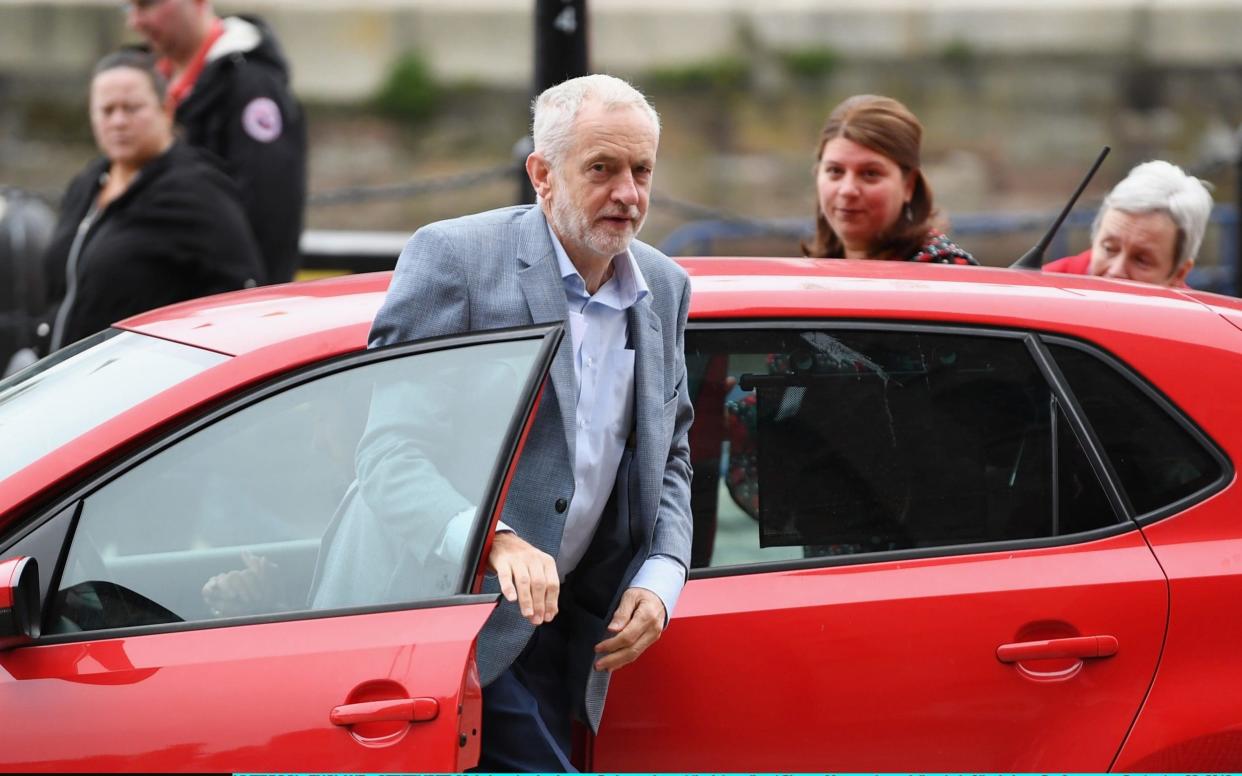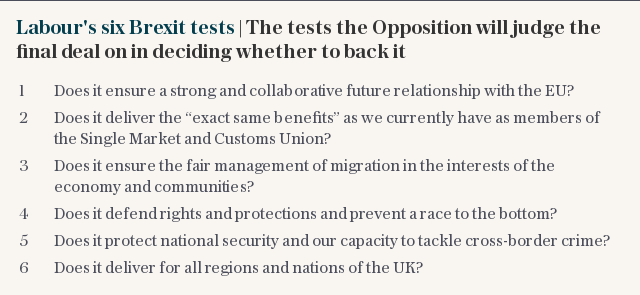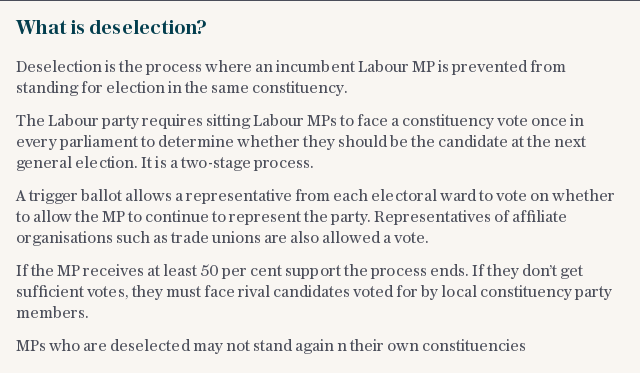Labour poised to back second referendum as Jeremy Corbyn promises to 'adhere to' demands of members

Labour is poised to back a second referendum after Jeremy Corbyn confirmed he is prepared to commit to a major policy shift if the party’s members vote for it.
On the eve of Labour's annual conference, Mr Corbyn said he would "adhere" to "what comes out of conference", although he insisted he would rather bring about a general election.
His comments pave the way for a significant change in Labour’s Brexit policy, with delegates gathering at this year's conference in Liverpool thought to be overwhelmingly in favour of a so-called ‘people’s vote’ on the final deal.
Up until now, Mr Corbyn’s team has insisted that they respect the result of the referendum and have resisted calls for Labour to become the anti-Brexit party.
However, in recent months they have come under mounting pressure from members and remain-supporting backbench MPs, who have thrown their weight behind the people’s vote.

With new polls showing that as many as 9 in 10 Labour members back a second referendum, Mr Corbyn on Saturday night said that he had been “elected to empower the members of the party”.
“So if conference makes a decision I will not walk away from it and I will act accordingly,” he told the Daily Mirror.
“What comes out of conference I will adhere to. But I’m not calling for a second referendum. I hope we will agree that the best way of resolving this is a General Election.”
It comes just two days after Theresa May urged the Labour leader to clarify his position on Brexit, amid concern that a Labour U-turn could jeopardise any deal reached with Brussels and prevent the UK from leaving the EU.
The Prime Minister warned that “advocating a second referendum and extending article 50” would send the country back to “square one”, adding: “Many in Labour, the Liberal Democrats and the SNP are trying to thwart Brexit at every step.”
Her comments were echoed by Brandon Lewis, Conservative Party chairman, who said: "The last pretence that Labour ever respected the democratic decision of the British people is rapidly disappearing."
At present, Labour’s policy is to accept the referendum result and ensure that the final Brexit deal meets its six tests, which include guaranteeing the same benefits to the single market and customs union as the UK enjoys currently.
Whilst a number of remain-backing Labour MPs were quick to heap praise on Mr Corbyn, others were more sceptical.

They pointed out that in order to bring about a change in Labour policy, conference delegates would need to be given a clear vote on whether they back a second referendum.
At present, the only proposal on the table is for a complex, composite motion, which some fear is designed to prevent delegates from expressing a clear mandate.
Both Mr Corbyn and John McDonnell, the shadow chancellor, have repeatedly stated that they would prefer to agitate for a general election so that they can secure the keys to Downing Street and take control of the Brexit negotiations.
On Saturday, Mr McDonnell revealed that shadow ministers were undertaking “preparation for government’ exercises and the party was drawing up a Queen’s speech ready for implementation immediately after a snap election victory.
He added that Labour wanted to press ahead with Brexit, because it would secure better terms than Mrs May’s government.
Major rule changes coming
Labour’s governing body has approved measures which would make it easier for supporters of Jeremy Corbyn to remove moderate MPs and force them to stand for reselection, The Telegraph understands.
On Saturday night, the national executive committee agreed to new measures which, if implemented, would force Labour MPs to stand against other candidates if just 30 percent of their local constituency members voted to initiate an open contest.
At present, most Labour MPs are automatically selected to stand again through the traditional trigger ballot system, which requires more than half of local members to demand a new hustings.
The move is likely to fuel growing division between moderate MPs, who fear being purged over their criticism of Jeremy Corbyn, and those on the hard-left who are pushing to completely remake the party in the Labour leader’s image.
Whilst Momentum, the pro-Corbyn campaign group, had been pushing for mandatory reselection of all MPs, it is understood that this was not put to a vote as some members of the NEC feared it could split the party.

Last night a spokesman for Momentum said open selections were “absolutely necessary” to bring about a “new generation of MPs”, suggesting that they will continue to place pressure on the party to reconsider.
The NEC have also approved significant changes to the processes surrounding leadership nominations which would make it easier for a like-minded candidate to Jeremy Corbyn to secure a place on the shortlist of candidates.
Under the proposed changes, candidates would still need to be backed by 10 percent of MPs and MEPs.
However, they would also have to secure 5 percent of local members or union members, a move which would allow Labour’s grassroots to veto candidates even if they had secure enough votes among their parliamentary colleagues.

Moderate MPs believe the changes would make it much more difficult for a centrist or Blair-type candidate to be shortlisted, as they are unlikely to receive union support or the votes of the hundreds of thousands of members who have joined the party under Mr Corbyn.
The NEC also approved plans to elect a second deputy leader, who would be a woman, in a move allies of Tom Watson believe is an attempt to further limit his influence in the party.
It is understood that the raft of changes will now be put to the conference floor on Tuesday, where delegates will vote on whether to incorporate them into the Labour constitution.

 Yahoo News
Yahoo News 
